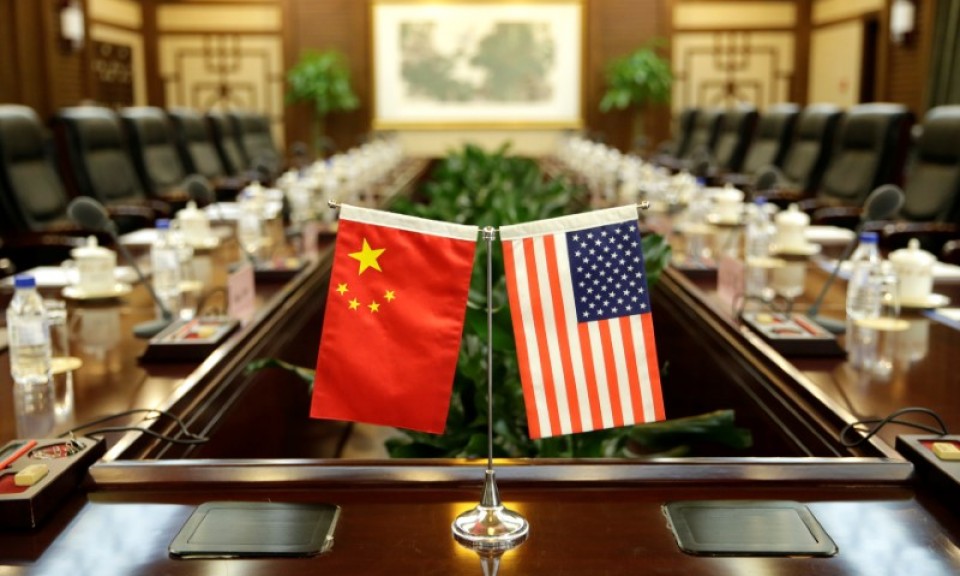Media Report

- The Wall Street Journal reports, "Chinese and U.S. negotiators are focusing this week on producing a broad outline of a trade agreement for their presidents to clinch at a possible summit, according to people with knowledge of the matter. Officials holding trade and economic portfolios for both governments are seeking to narrow the still-substantial gap between the concessions China is willing to offer and what the Trump administration will accept. Discussions between midlevel officials began on Monday in China's Commerce Ministry. Then, a high-level U.S. delegation led by Trade Representative Robert Lighthizer and Treasury Secretary Steven Mnuchin will hold two-day talks, starting Thursday, with Chinese Vice Premier Liu He and his entourage. Both sides hope to hash out a framework of a deal, the people said, with the goal of getting it finalized in a meeting between President Trump and Chinese President Xi Jinping."
- Bloomberg reports, "Senator Marco Rubio is proposing legislation that would counteract China's 'Made in China 2025' economic-development initiative by restricting and taxing Chinese investment in the U.S. and by raising import duties on goods produced by industries supported by Beijing's program. In a report Tuesday from the U.S. Senate Committee on Small Business and Entrepreneurship on Tuesday, Rubio said he wants to use China's plan as a road map for defensive action and to combat what he describes as an existential threat to American industry. 'The American people know something has gone wrong,' Rubio, a Republican from Florida, wrote in the introduction to the report. 'Will our country look more like the land of shared opportunity my parents found when they arrived, or will we become a stagnant nation fighting over how to divide up what is left?'"
- The New York Times reports, "U.S. Secretary of State Mike Pompeo on Tuesday invoked the 30th anniversary of the demise of communism to implore countries in Central and Eastern Europe to resist Chinese and Russian influence. Speaking in the Slovak capital of Bratislava, Pompeo said China and Russia pose twin threats to the democratic and free-market gains made since the fall of the Berlin Wall in 1989. He said the post-communist countries are particularly vulnerable to Chinese and Russian predatory investment and political meddling. To combat the threat, he said, the United States is committed to boosting its engagement in the region, through defense cooperation agreements and exchange programs...Pompeo said he had raised with Slovak officials the 'need to guard against China's economic and other efforts to create dependence and manipulate your political system.'"
Calendar
- 2019-02-11 Trump officials considering Mar-a-Lago for next meeting with China's Xi: report
- 2019-02-10 White House discussing possible trade summit with China at Mar-a-Lago: report
- 2019-02-01 Trump plans to meet Chinese leader Xi Jinping to resolve trade dispute
- 2019-01-31 Trump Says No Final China Trade Deal Until He Meets With Xi
- 2019-01-30 Critical China trade talks open amid tough U.S. action against Huawei
- 2019-01-29 China slams US over 'unreasonable crackdown' on Huawei
- 2019-01-28 Canada’s Ambassador to China Pushed Out Over Controversy
- 2019-01-27 America Pushes Allies to Fight Huawei in New Arms Race With China
- 2019-01-25 China says Soros' criticism of Xi is 'meaningless'
- 2019-01-24 China Appears to Block Microsoft’s Bing as Censorship Intensifies
News
- The Wall Street Journal China, U.S. Seek to Narrow Gap on Trade for Trump, Xi to Close at a Summit
- Bloomberg Rubio Seeks to Counter 'Made in China 2025' Manufacturing Plan
- The New York Times Pompeo Warns Eastern Europe on Chinese and Russian Meddling
- The Wall Street Journal U.S.-China Trade Hopes Give Stocks a Lift
- The Washington Post Uighurs to China: Post a video of my missing relatives, too
- CNN The US is stepping up pressure on Europe to ditch Huawei
- Axios China wants its own pharma industry
- CNN New Pentagon report warns of Russian and Chinese laser threats to US satellites
- Reuters Northern China pollution up 16 percent in January
- The New York Times Casino Hub Macau Braces for Impact of Slowing Chinese Economy
- CNN There's a trade war with China. Here's why most Americans haven't noticed
- The New York Times Reddit Raises $300M in Finance Round Led by China's Tencent
- CNBC Here's a blueprint for investors trading the different China-US trade war outcomes
- CNN Chinese billionaire stripped of visa calls Australia 'a giant baby'
- The Guardian China challenges Hollywood with own sci-fi blockbuster
Commentary
- Financial Times Watch out for China's trade red lines as anniversaries loom
- Forbes China Feels The Pain As It Negotiates In Washington
- The Diplomat How Old Is China's Belt and Road Initiative Exactly?
- The Hill No short-term China deal can address the systemic issues
- The National Interest Taiwan's Balancing Act
- Financial Times Blanket bans on China tech firms make no sense